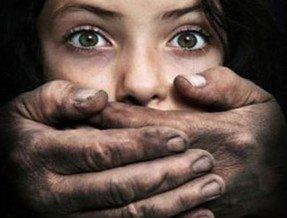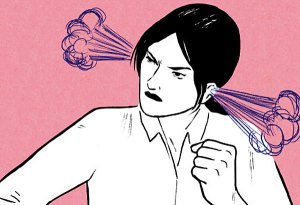[trigger warning for rape, rape apologia]
This has been a brutally hard week for me in more than a few ways. It’s gotten to the point where it’s not just emotional and mental pain, but physical. Yesterday’s post, on being hopeful, was one of the weakest posts I’ve ever published because as much as I actually do believe in everything I said, writing it yesterday was . . . difficult. I was hoping that if I put those thoughts into words that they would be a little easier to believe.
I had a personal encounter last Thursday that . . . I honestly don’t know how to describe it. Troubling, I guess. One of the things that came up was a comment he had made in an earlier conversation– that the statistics on rape (1 in 5 women are forcibly raped) are “nonsense” and “bullshit,” and he made this additional comment on Thursday: “I could understand if you were mad at me if I was denying the Holocaust or something, but I’m not doing that.” What he said was true, in one way. The Holocaust is an event in history unlike any other, and the memory of every person slaughtered– Jew, gay, Christian, political prisoners, the disabled– deserves the honor and respect of not trivializing what happened to them.
But, in another sense, his position that the American rape statistics are “bullshit” is a denial of horrific and ongoing tragedy.
The problem is, he’s not alone. His perspective– that rape is rare, that most accusations are lies, and that rape victims are at least partly responsible for what happens to them– is the one American culture believes. If any week could have driven that point home with a sledgehammer, it was this one, after Dylan Farrow published her letter on Saturday.
Reading her letter broke my heart. What tore it open and left it shattered was the response that came next– Weide’s Daily Beast article (I used donotlink.com), the countless comparisons on twitter to lacrosse teams, all the claims that Dylan’s mother is a lying whore, so Dylan’s probably lying, too. All the comments on facebook stating that they want “objectivity” and “they’re not going to take sides,” the endless stream of posts on how to “separate art from the artist.”
I want to crawl into the deepest, darkest, most obscure hole on the planet where nobody could ever find me and say any of those things to me, ever again.
~~~~~~~~~~
When my abuser and rapist broke our engagement two months before the wedding, the reason he gave me was that I “wasn’t submissive enough.” It took me little over a month to figure out what he was referring to, especially since I’d spent almost three years bending over backwards for him in every possible way. When I realized why I was “not submissive,” I got angry. Furious, actually. It was because, a month before he dumped me, he tried to call me a goddamn fucking bitch and I told him that no, he didn’t get to talk to me like that and he could call me later when he’d calmed down. It was because, when he expected me to service him sexually, I told him no. It was because, after three years, something deep inside of me said no, I am not his bitch.
After he broke our engagement, all of our “mutual” friends instantly pulled away from me. Women who used to shout my name across campus and hug me for no reason refused to look me in the eye or return my hellos. People started declining my invitations to lunch and dinner, and I began eating alone. When I did my best to reconnect with friends my abuser had separated me from, our “mutual” friends told them that “she is such a bitch, you have no reason to be her friend any more, she’s nothing but a waste of your time.” Most of my ‘friends’ made it clear that they would never, ever, speak to me again.
The only person who would pay attention to me, except for three people, was my abuser. He would follow me all over campus, into the cafeteria, into classrooms, at sporting events, in church– and it was always the same. Why won’t you talk to me? I just want to talk to you! And he would keep this up until I would snap. After ignoring him for a solid twenty minutes, he would call me a bitch and something inside would break and I would spin around and scream at him until the cafeteria manager asked me to leave. After pestering me for an hour, continuously, at a soccer game, I finally understood what it meant to see red – and one look from my band director told me everything I needed to know. I left.
I spent countless hours that semester in soundproof practice rooms sobbing, and I didn’t find out until a few months ago why all of that happened. Why everyone withdrew. Why he did his dead-level best into provoking me.
He’d convinced everyone that anything I could possibly say would be a lie. That I was actually crazy, and not worth believing. He successfully did what all abusers and rapists do: he manipulated any of the people who mattered into disbelief. And when I sought counseling for the first time, the only thing anybody said was “well, what did you do that you need to seek forgiveness for?”
~~~~~~~~~~
When I first started dating him, I knew that his previous relationship had ended badly, that she was hurtful and manipulative, that she frequently lied. When her best friend tried to reach out to me and tell me how dangerous John* was, I refused to believe anything they said. It was just another manipulation.
When he called me in the middle of the night, two years into our relationship, obviously drunk and sobbing, to confess something he’d done, I refused to even hear what he was actually telling me. It was her fault. It wasn’t rape. She’d provoked him. Just like I had. What could either one of us expect? I forgave him for “cheating” on me, and tried to forget her.
When he broke up with me and two months later was going out with another girl, I thought about warning her of what he was like, but everything inside of me screamed no! there’s no point, she won’t believe you anyway. When she contacted me a year later and told me what he’d done, I desperately wished I could have gone back and done something, anything, to protect her from him.
~~~~~~~~~~
Now, my rapist is a youth pastor. He’s “just fucking fine.”
Now, I am going through the excruciating, traumatic process of figuring out what I can do– with the bone-deep knowledge that anything I do will make no difference, that the most I can even hope for is that when he does rape someone again, that people will know that this is a pattern, that he’s a rapist and an abuser, that maybe, just maybe, that his next victim will be believed.










